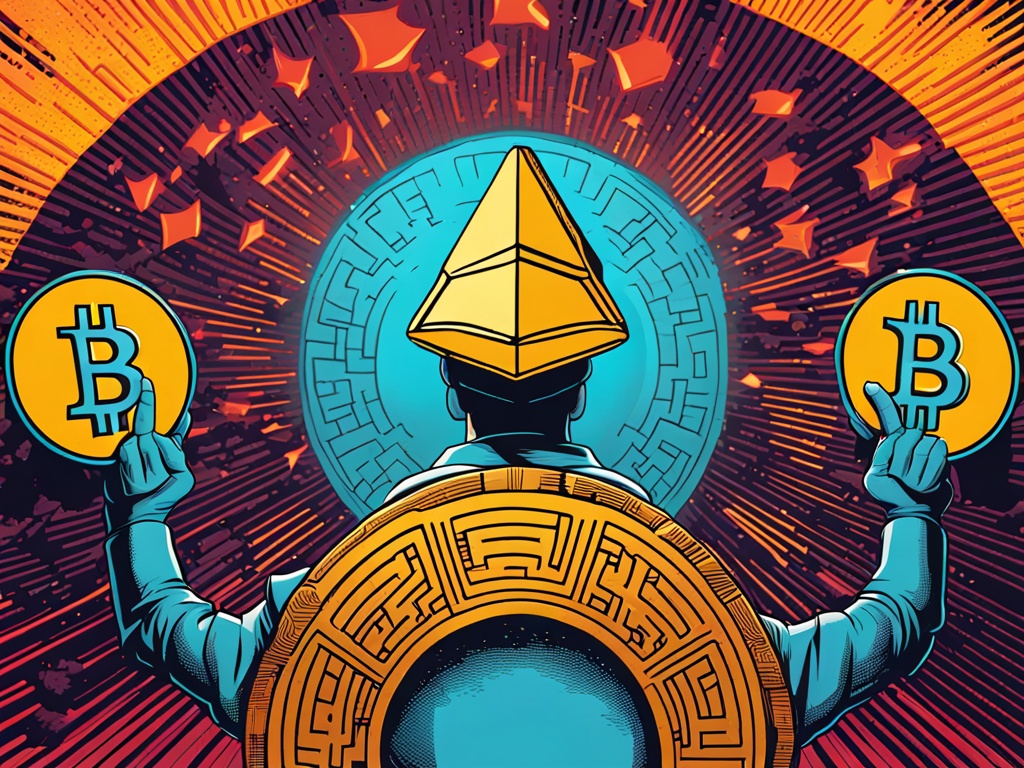Exploring Bitcoin’s Path to Reserve Asset Status 🌍💰
This article delves into the current discussions surrounding Bitcoin’s potential as a reserve asset and the numerous obstacles it faces in achieving this status. The insights come from a recent roundtable hosted by Nomura, where financial experts analyzed the ramifications of recent political changes on the economic landscape and Bitcoin’s role in it.
Insights from the Nomura Roundtable on Economic and Market Implications 📊
This year, during a roundtable discussion led by Nomura, a prominent financial services organization, experts explored the implications of the new administration on the economy and how it may influence the adoption of Bitcoin as a reserve asset.
The panel recognized that several factors would hinder Bitcoin’s journey toward becoming a reserve asset, primarily centered around regulatory uncertainties and operational complexities. Greg Hertrich, who serves as the Head of U.S. Depository Strategies at Nomura, pointed out the significant regulatory void that currently exists. There remains no clear regulatory framework to define Bitcoin’s place within the financial ecosystem, particularly concerning U.S. banking regulations.
Regulatory Hurdles for Bitcoin Adoption in Financial Systems ⚖️
Hertrich expressed that the absence of regulatory clarity acts as a significant obstacle. The uncertain status prevents institutions from confidently integrating Bitcoin into their operations, creating a barrier for broader acceptance.
In addition to regulatory challenges, operational difficulties must also be confronted. Hertrich elaborated on the need for banks to adapt to Bitcoin’s unique requirements, which could involve extensive changes in their compliance practices. He noted that banks would need to enhance their Anti-Money Laundering (AML) protocols, requiring investments in specialized talent and technologies to align with regulatory demands for operating digital assets.
He explained, “U.S. banks are going to have to hire people to handle all of the anti-money laundering, and Bank Secrecy Act tasks, which have historically represented a significant financial burden.” This acknowledgment emphasizes the extensive preparations necessary for banks to manage Bitcoin and other digital assets effectively.
Challenges of Bitcoin’s Limited Supply as a Reserve Asset 📉
Additionally, David Seif, Nomura’s Chief Economist for Developed Markets, addressed Bitcoin’s limited availability as a critical barrier to its acceptance as a major reserve asset. This year, he highlighted that unlike gold, which has a more expansive market presence, Bitcoin’s finite supply makes it less suitable for large-scale institutional adoption as a reserve.
Seif noted the disparity in market capitalization between Bitcoin and traditional assets: “Even with Bitcoin achieving record prices, its total market cap is relatively minor, standing at less than two trillion dollars compared to gold, which has a significantly larger supply.” He further insisted that as it stands, Bitcoin is not adequately positioned to serve as a reliable reserve for any prominent economy.
The Road Ahead for Bitcoin’s Future 🌐🔍
Considering these insights from the Nomura panel, it becomes clear that Bitcoin’s aspirations to attain reserve asset status are fraught with challenges. The ongoing regulatory uncertainties, operational adaptations required by banks, and Bitcoin’s inherent supply constraints create a complex landscape for proponents of cryptocurrency. To successfully navigate this path, comprehensive regulatory frameworks and structural adjustments in financial institutions will be paramount.
Hot Take: The Future of Bitcoin as a Reserve Asset 🔮💬
As discussions about Bitcoin’s potential as a reserve asset continue, it remains essential to monitor both the evolving regulatory landscape and market dynamics. While some advancements may emerge, the hurdles currently in place present significant challenges. Bitcoin’s journey will heavily depend on how these issues are addressed in the coming years.
In summary, while there is optimism surrounding Bitcoin’s integration into mainstream finance, a clear understanding of the regulatory, operational, and market constraints is crucial. The next steps taken by regulators, financial institutions, and market participants will be pivotal in shaping Bitcoin’s potential to be recognized as a legitimate reserve asset.





 By
By
 By
By

 By
By
